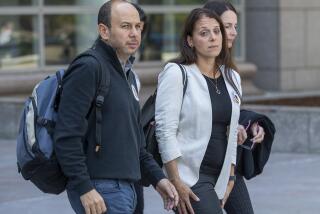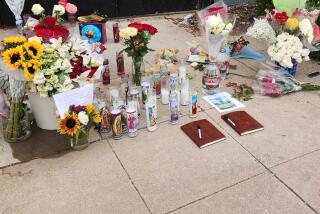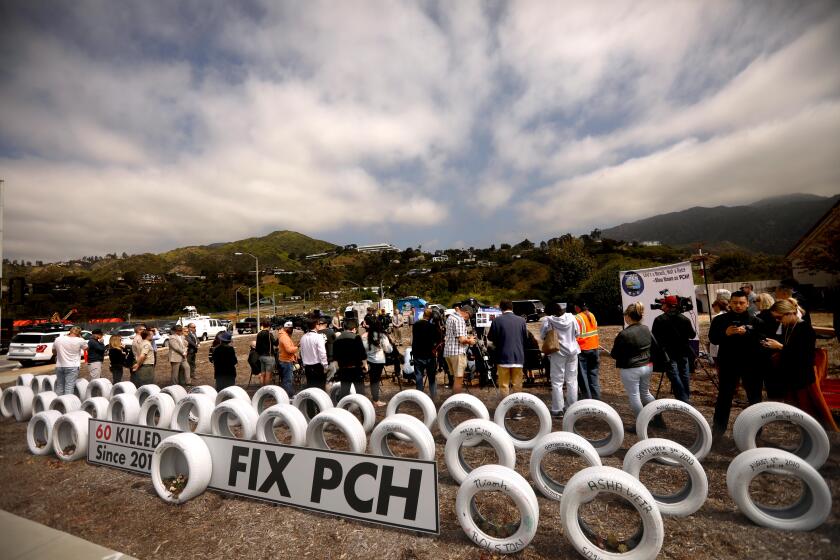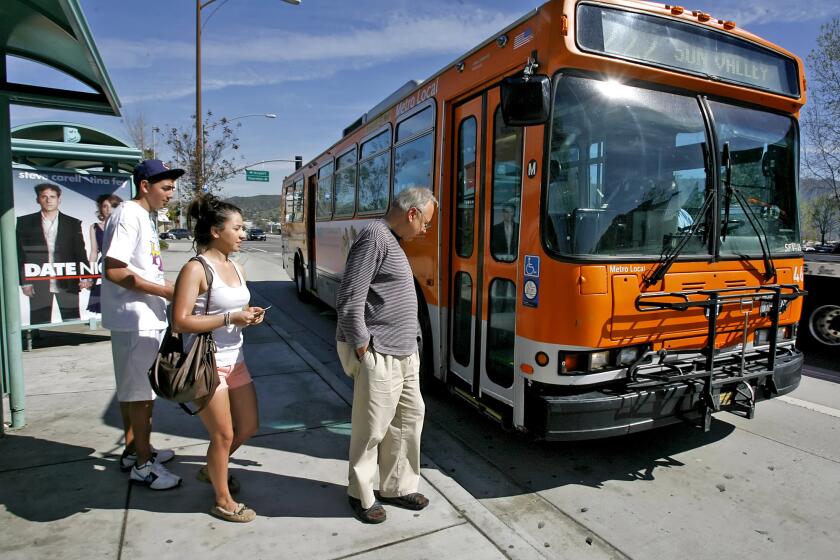Mineta, Senators Clash Over Airport Security
A visibly angry Transportation Secretary Norman Y. Mineta told Congress on Thursday that the Bush administration is not prepared to endorse a federal takeover of airport passenger screening.
Noting that such a solution would entail hiring 28,000 employees and cost $1.8 billion a year, Mineta nonetheless promised significant improvements over the current system. Airlines now contract with private security companies for low-wage screeners, who usually leave for better jobs after a few months.
“It will be enhanced. It will be a . . . lot better than it is right now,” Mineta told the Senate Commerce Committee. But he added, “I can’t sit here and guarantee that it’s going to be federal civil service employees doing the screening.”
Tempers flared as senators criticized the administration’s position, with Sen. Barbara Boxer (D-Calif.) calling it “sad” and telling Mineta “that sounds to me like the status quo.”
“Absolutely not,” responded Mineta, who served as a Democratic congressman from San Jose and Clinton Cabinet secretary before joining the Bush administration.
The exchange came as Congress held its first hearings on improving aviation security in the aftermath of the Sept. 11 terrorist attacks.
Separately, Los Angeles Mayor James K. Hahn asked President Bush to support a federal takeover of airport security and for financial assistance to airlines and airports.
Since the attacks, LAX has operated at a deficit of $1.6 million a day because the city has to pay more for beefed-up security and has seen a decline in revenue generated by landing fees, airport concessions and parking lots, officials said.
Security is “a burden we should lift from the airlines,” Hahn said. “The air traffic control system is run by the FAA. [There is] no significant difference, it seems to me, for baggage and passenger screening.”
At the hearings on Capitol Hill, there was no shortage of suggestions for improving security. The Air Line Pilots Assn. recommended that commercial pilots be equipped immediately with stun guns and trained in their use. A Boeing executive said the company is considering a series of measures, from stronger cockpit doors to more secure communications, for commercial jets registered in the United States.
And many members of Congress urged reopening Reagan National Airport in suburban Virginia. The airport, which has remained closed because of its proximity to key federal buildings in Washington, is a favorite of lawmakers because of its convenience.
Aviation and law enforcement insiders have long regarded airport security as soft, but with the public now alarmed, the Bush administration finds itself in an ideological predicament. “Federalizing” airport screening would entail a significant expansion in the role of government and would violate a GOP tenet that less government is better.
Nonetheless, several prominent Republicans, including House Majority Leader Dick Armey of Texas, Rep. Frank R. Wolf of Virginia and Sens. John McCain of Arizona and Kay Bailey Hutchison of Texas, have either endorsed or indicated they are open to the idea of Washington taking over responsibility for screening. Hutchison is drafting legislation that would create a new security division in the Federal Aviation Administration, combining screeners and federal air marshals.
It is not yet clear whether a failure of airport screening contributed to the disasters in New York, Arlington, Va., and Pennsylvania.
The weapons used by the hijackers, described as box cutters by passengers who managed to make cell phone calls, may have been legal under FAA rules. Until last week, passengers were allowed to board carrying knives with less than a four-inch blade. But Congress seems determined to avoid another tragedy.
“I could take a bill this afternoon and whip it through both Houses,” Senate Commerce Committee Chairman Ernest F. Hollings (D-S.C.) told Mineta, conveying the strong desire for a government-run screening system.
The secretary said he will make a recommendation for security improvements by the end of the month.
Kenneth Mead, the Transportation Department’s inspector general, offered a compromise: the creation of a congressionally chartered nonprofit corporation to operate airport checkpoints. “This entity would have security as its primary and central focus, profession and mission,” Mead said.
“The time has come,” he added.
Numerous reports by the inspector general’s office and the congressional General Accounting Office have documented gaps in airport security. Undercover federal agents have been able to defeat screening measures with impunity.
Mead testified Thursday that security companies’ standards are low. He noted that one firm, Argenbright Holdings Ltd., which has screening contracts at 46 airports, was fined $1 million in 2000 for failing to conduct required background checks on security staff members at the Philadelphia International Airport from 1995 to 1999.
Gerald Dillingham, aviation issues director for the GAO, noted that annual turnover among screening staff is as high as 400% at some airports. This is a particular concern, he said, because someone can quickly acquire inside knowledge about security procedures, leave the job and pass the information on to people intent on breaching the system.
The FAA soon will issue new requirements--in the works for several years--to raise qualifications and improve training for screeners.
Rep. Harold Rogers (R-Ky.) complained that there is no U.S. citizenship requirement for airport screeners. Mead testified that at Dulles International Airport in suburban Virginia--the departure point for hijacked American Airlines Flight 77--about 80% of the security screening staff are not U.S. citizens.
Asked Rogers: “What’s wrong with this picture?”
*
Times staff writer Patrick McGreevy in Los Angeles contributed to this story.
More to Read
Start your day right
Sign up for Essential California for news, features and recommendations from the L.A. Times and beyond in your inbox six days a week.
You may occasionally receive promotional content from the Los Angeles Times.






